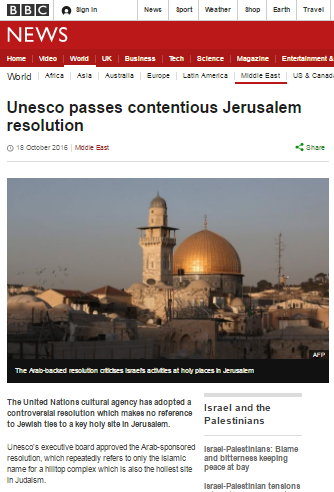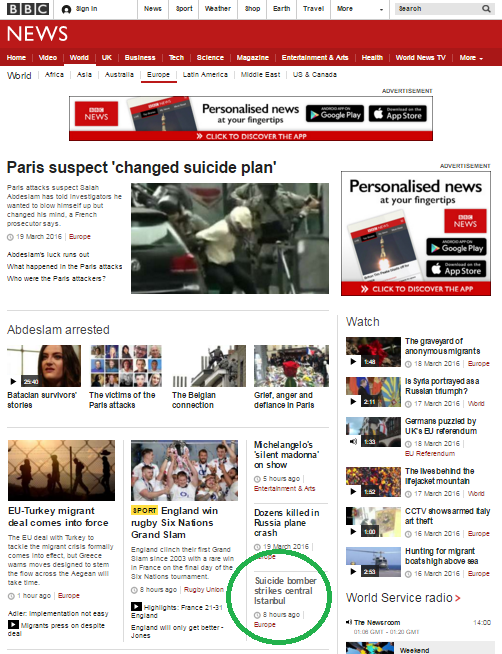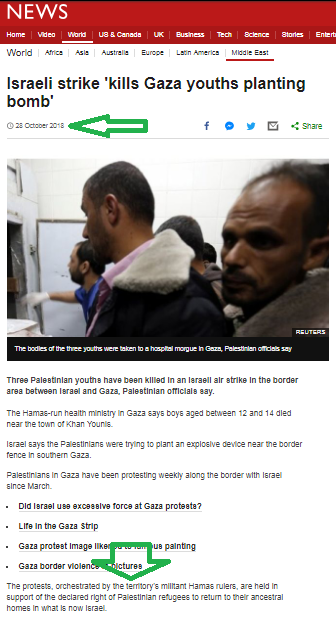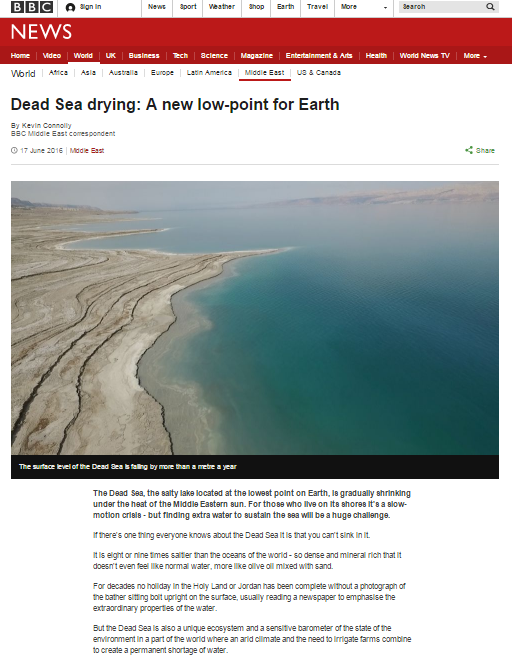h/t AB
Earlier this month we documented the BBC Radio 4 ‘Today’ programme’s one-sided presentation of the Gaza Strip in an item concerning a new film about that location.
Gaza propaganda on BBC Radio 4’s ‘Today’
The August 19th edition of the BBC World Service radio programme ‘World Update’ devoted over nine of its fifty-three minutes of airtime to a similar exercise.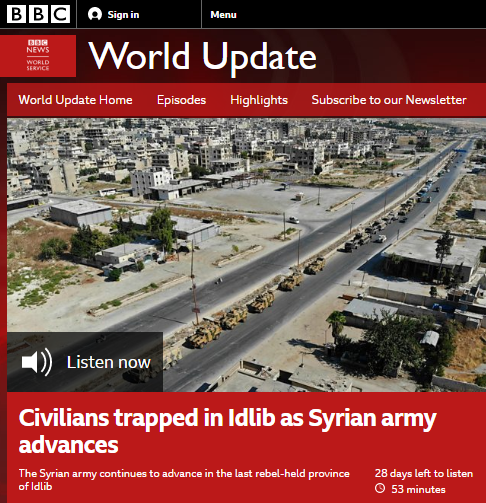
“And a new documentary shows everyday life for those living in Gaza.”
Presenter Rebecca Kesby introduced the item (from 43:38 here) using some bizarre linkage that included an unsupported assertion. [emphasis in italics in the original, emphasis in bold added]
Kesby: “Now, the Palestinian territories have been in the news over the past few days, partly because Israel denied permission for two US Congresswomen to visit them following pressure from President Trump. Israel did then allow Democrat Congresswoman Rashida Tlaib permission to make a humanitarian visit to her grandmother who lives in the occupied West Bank but she rejected that offer. She said she couldn’t comply with the oppressive conditions being imposed. Whatever your view on the political situation in the Holy Land, there is little debate that life for Palestinians living in the Gaza Strip is very tough. It’s only 25 miles long and seven miles wide but home to two million people, many of whom live in desperate poverty. A new documentary film has just been released called ‘Gaza; and it depicts ordinary life in the territory. [clip from film] And that’s the sound of children playing in the sea off the Gaza coast, the beaches of Gaza being some of the only open spaces available in a densely populated city. It’s the beginning of the film and earlier I spoke to the production manager Fadi Hussam Hannona in our Gaza bureau and first to the co-director of the film, Andrew McConnell.”
McConnell began by repeatedly promoting the claim that the film shows audiences aspects “that they don’t expect to see in Gaza”, and:
McConnell: “…it’s only later on that we bring in sort of the familiar imagery; that of protests and conflict.”
Turning to her second interviewee, Kesby commented on one part of the film.
Kesby: “…the young lad to begin with, he says he’s from an enormous family – I think he’s one of 14 children – and he says he quite enjoys sleeping down by the sea because there’s more room down there. It gives you a sense of just how densely populated and, I suppose, pressurised that area is.”
Hannona: “Listen Gaza has been used to an image of violence and destruction on the news. Yes, there is a conflict in Gaza but people here just want to live a normal life like you, like everyone. So we tried through our film ‘Gaza’ to show the other side of Gaza: the side where the normal people are suffering every day. And the Gaza Strip cannot be understood by only looking at the political and focusing on the conflict – no. It can be understood by living with the people. So we did that. Through our film, through our character, the audience will have a chance to spend hour and half with the normal people from Gaza and see how they live and think and worry. So we just want to be like everyone else. This is our message.”
Kesby of course refrained from reminding listeners that those “normal people” voted Hamas into power in four out of five Gaza constituencies in the 2006 election and that “everyone else” does not elect a terror organisation that dedicates itself to the destruction of a neighbouring country. Instead she went on to bring up another character from the film.
Kesby: “…ehm, there’s a young girl in the film who plays the cello.”
Hannona: “Yeah Karma she’s a young girl and I found this character, you know, we need to show the people on the world we have children. They need the right to live a normal life and Karma one of them. But Karma also she have problems. She can’t keep living under this situation, you know, every month, every two months, we have some problems in Gaza. We hear bombing, we are under siege, we can’t…we can’t leave Gaza, you know. You need to wait one year if you decide to leave to study or to attend a festival outside of Gaza. So they need their rights.”
Kesby made no effort to clarify to audiences that the Gaza Strip is not “under siege” or to provide the context of the terrorism perpetrated by numerous armed factions in the Gaza Strip. In fact the word ‘Hamas’ was not uttered even once by any of the three participants in the item.
Kesby: “Hmm…have you ever left Gaza?”
Hannona: “No, actually I…actually it was a chance for me last…in the beginning of this year to attend the world premiere of ‘Gaza’ documentary at Sundance Film Festival and we did everything – everything – just one day before the day I was supposed to leave they closed the border between Gaza and Rafah.”
Kesby: “Wow.”
Hannona: “And I didn’t…I lost the chance.”
Kesby: “What a pity.”
Seeing as Hannona told that same story in his Radio 4 interview eleven days earlier, Kesby should have been able to inform listeners that “they” are the Egyptians, who closed their border crossing with the Gaza Strip in February due to Hamas’ take-over of the Rafah Crossing after Palestinian Authority staff had been withdrawn.
Kesby then asked McConnell how he and Hannona met and his answer included the following:
McConnell: “…we also returned back last year – 2018 – and the border protests had started and which has now become sort of a huge part of everyday life in Gaza and these continue to this day, over a year later. Many people have been killed. And we…so we managed to film a lot of that, especially on the 14th of May when the embassy was moved to Jerusalem from Tel Aviv and that was one of the bloodiest days since the war in 2014 when over 60 people died.”
Kesby made no effort to clarify to audiences that those so-called “protests” are in fact weekly episodes of premeditated violent rioting organised by terror groups and that fifty-three of the sixty-two people killed that day were claimed by terrorist organisations. Instead she continued her innocuous questioning.
Kesby: “And was it quite challenging to strike the right balance between reflecting ordinary live people, you know, getting married, going about their normal lives, trying to educate their children, trying to enjoy themselves and this constant pressure and…and, you know, elements of violence and threat that people live under?”
Towards the end of the item listeners heard three times – twice from Hannona himself and once from Kesby – that he has not seen the film “because there’s no cinema in Gaza”. Seeing as that talking point also arose in the earlier ‘Today’ interview, Kesby should have been able to inform listeners that the reason there is no longer a cinema in Gaza is because it is ruled by an extremist Islamist terror organisation.
And so for the second time BBC audiences heard uncritical, unchallenging and uninformative promotion of this film in an item which only served to hinder their understanding of a complex topic.

